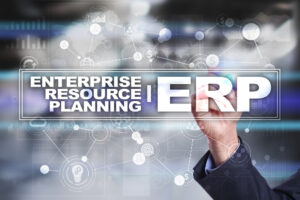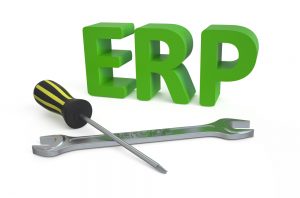Is Your Business Ready for an ERP System?
In the life cycle of every growing business, there comes a pivotal moment where the once small and agile team, capable of managing everything manually, starts to falter under the increasing complexity of operations. As your customer base expands and projects grow larger, the task of keeping track of schedules and costs in real-time becomes daunting. The agility that once defined your business is challenged, making it crucial to reassess your operational strategies.
The Evolution of Business Needs
Initially, businesses may respond to these challenges by hiring additional staff focused on managing the overflow of information—positions that typically do not generate direct revenue. While this can provide temporary relief, it may not be a sustainable solution as business complexity grows.
If resources permit, the next logical step is to implement new systems designed to manage the swelling tide of data. However, these point solutions often suffer from a lack of integration, which can spiral into increased operational costs without a proportional increase in revenue. This phase, known as the “staircase effect,” is notoriously difficult to manage as expenses climb but profits do not.
Strategic Thinking: The Shift to ERP
A transformative approach involves a shift from a reactive to a strategic mindset. Rather than just solving the next problem that pops up, it’s about investing in a system that redefines how your business operates. This strategic pivot is not merely about adopting new technology but embracing a framework that can propel your business across the critical chasm from current challenges to future success.
Comprehensive Benefits of ERP Systems
ERP systems integrate various functions—like finance, HR, manufacturing, supply chain management, and customer relations—into a single, coherent information system that runs on real-time data. This integration can lead to significant improvements in quality and efficiency, providing a holistic view of your operations that helps identify and rectify inefficiencies swiftly.
Critical Questions to Assess ERP Readiness
To assess whether your business is ready for an ERP system, consider these refined questions:
- Data Management: Have you appointed someone specifically to oversee the integration and consistency of data across multiple systems?
- Financial Oversight: Has a lack of oversight led to missed financial milestones or errors in billing, potentially costing significant amounts?
- Profitability Tracking: Is there a delay in understanding the profitability of projects, and is the cause of profit or loss unclear after project completion?
- Operational Efficiency: Are manual processes like spreadsheet management becoming cumbersome, error-prone, and time-consuming?
- Financial Health: Is there increased scrutiny from financial institutions regarding your operational metrics, or an increased reliance on lines of credit to manage cash flow?
Further Considerations
Before moving forward with ERP implementation, it’s crucial to evaluate your current IT infrastructure, ensure executive buy-in, and consider the change management needed to shift your organization’s practices. Proper training and a clear implementation strategy are critical for a successful transition to an ERP system.
Conclusion
Adopting an ERP system represents a significant investment in both time and resources, but the payoff can be substantial. If your business is experiencing any of the challenges listed above, it might be time to consider how an ERP system can not only address current inefficiencies but also lay the groundwork for scalable, sustainable growth.
Contact us to find out if you really are ready.
Handpicked Related Content
-
This week, our CEO, Brad Dempsey, is joined by Brad Malone, Partner at Navigate Management Consulting, to talk about change management and ERP implementations. More specifically, how do integrators know when they are ready for all the change that will…
-
Preparation and organization were keys to AVI’s successful Q360 implementation Anyone who has ever experienced an ERP implementation, will tell you there is nothing ‘easy’ about it. But according to Kendra Apelt, Process Management Architect at…



